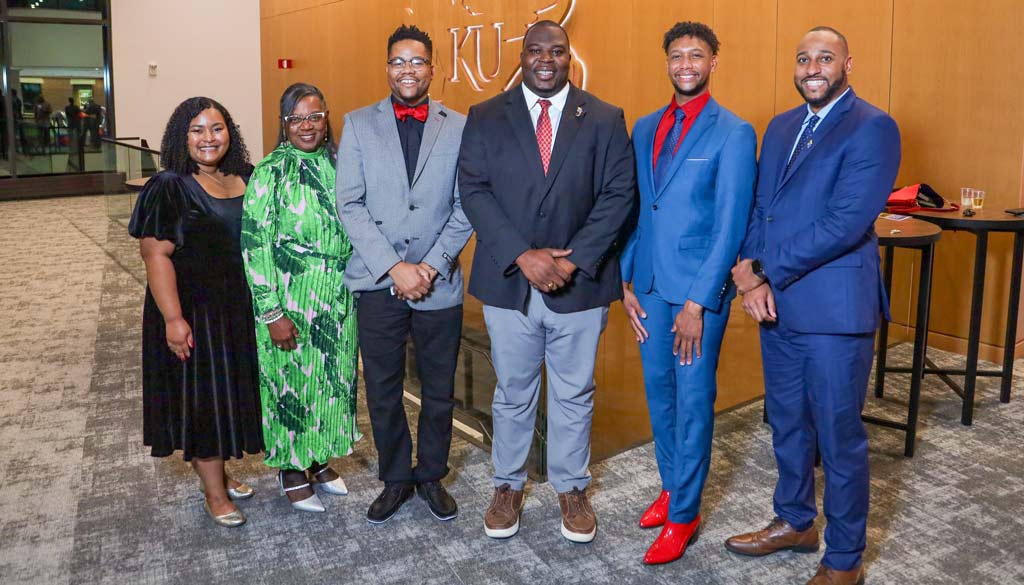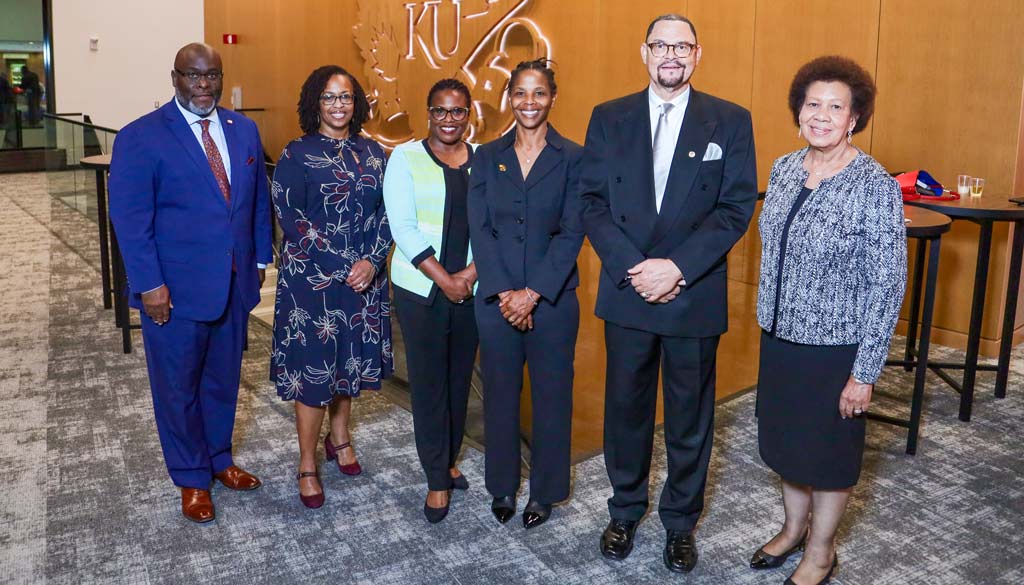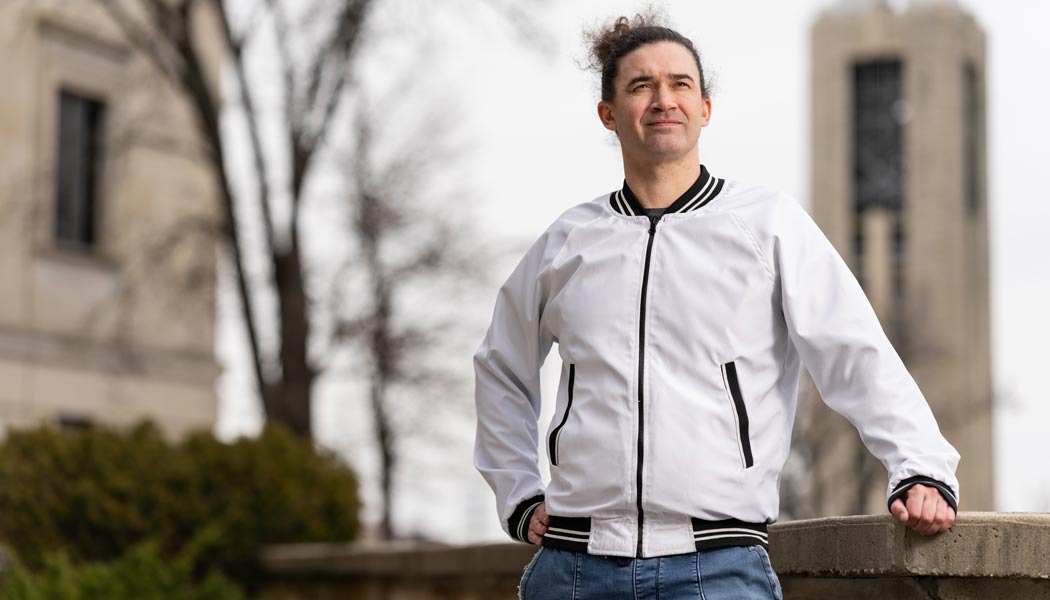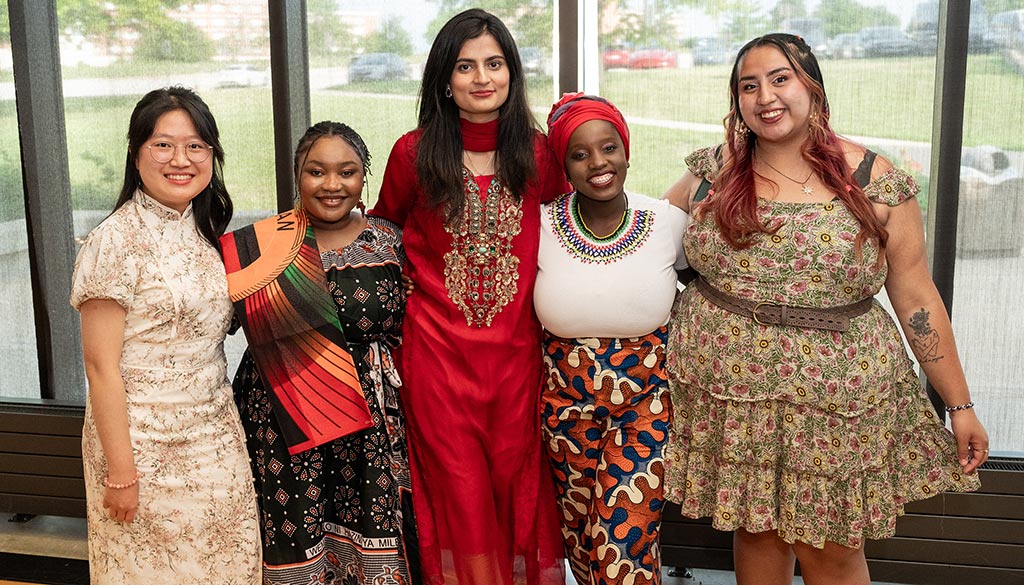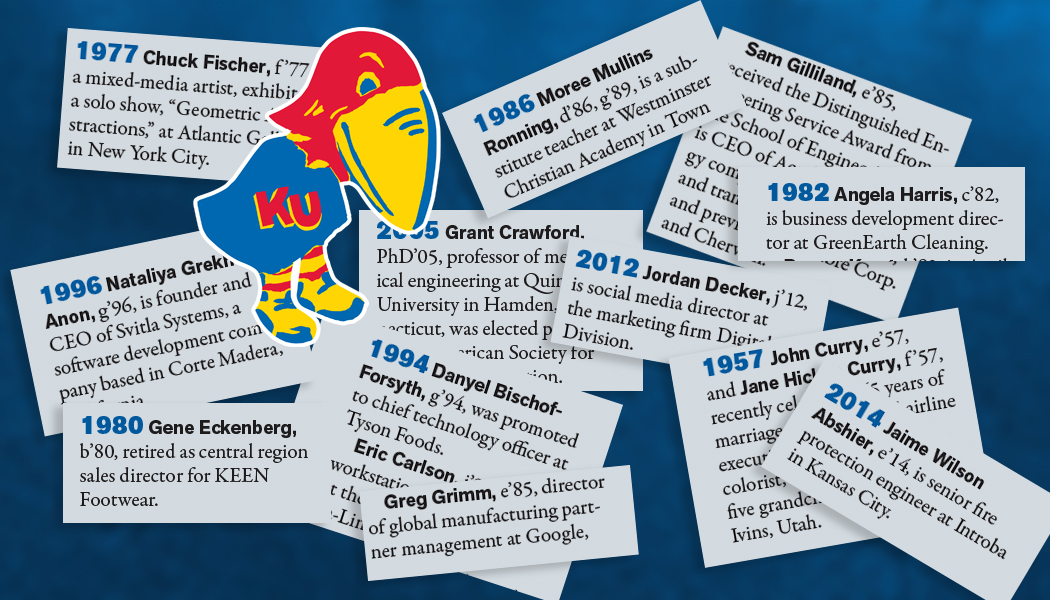Another prize for peacemaker Juan Manuel Santos
Former president of Colombia returned to the Hill to accept Dole Institute honor.
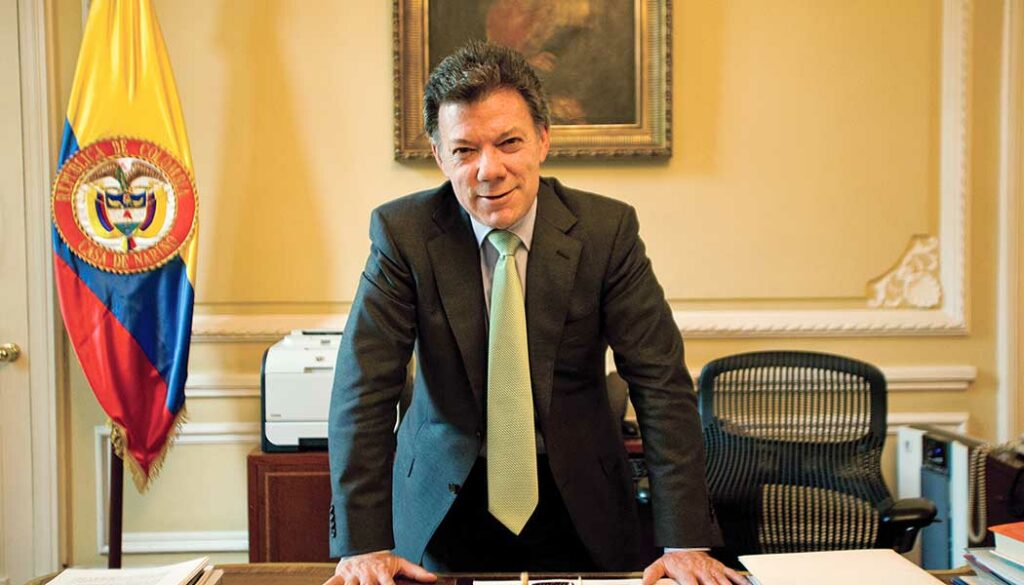
Juan Manuel Santos, who served two terms as president of Colombia and earned the 2016 Nobel Peace Prize for ending 50 years of civil war in his country, returned to his alma mater Sept. 20 to accept the 2022 Dole Leadership Prize from the Robert J. Dole Institute of Politics.
In honoring Santos, the institute fulfilled the wishes of the late Sen. Bob Dole, ’45, who recommended Santos for the award (Dole died Dec. 5, 2021, at 98). Santos, b’73, who met Dole several times through the years, said the senator’s endorsement enhanced the honor. “That is something I will keep in my heart until the end of my life,” he said.
The award presentation featured a conversation between Santos and institute director Audrey McKenna Coleman, c’01, g’05. Santos also answered questions from the audience and signed copies of his book, The Battle for Peace: The Long Road to Ending a War with the World’s Oldest Guerilla Army, published in April 2021 by the University Press of Kansas (“‘Forgiveness is Infinite,’” issue No. 2, 2021).
The Leadership Prize, presented annually to an individual who demonstrates the importance of involvement in political and civic affairs, is the third honor Santos has received from KU. He was named a Distinguished Alumnus by the College of Liberal Arts & Sciences in 2012, and in 2017 he received a KU honorary doctorate of humane letters for bringing peace to Colombia.
Santos, who chose KU for college at the urging of his older brother, Luis, j’70, studied economics and business on the Hill and earned graduate degrees from the London School of Economics and Harvard University. He began his career as a journalist at El Tiempo, the Colombian newspaper long owned by his family, before serving as minister of trade and minister of defense and ultimately leading his country as president from 2010 to 2018.
Six of his predecessors tried and failed to end the decades-long war with the Revolutionary Armed Forces of Colombia (FARC), but Santos succeeded in bringing perpetrators and victims together through arduous negotiations, which he said were inspired by his visit years earlier to South Africa to meet with President Nelson Mandela. Santos recalled seeing film of the negotiations that had ended apartheid, and the counsel he received from Mandela. “He explained to me the purpose of bringing victims and perpetrators together and how important it was to heal the wounds,” Santos recalled. “He said, ‘The most powerful weapon is to sit down and talk.’” What had been scheduled as a 15-minute visit stretched to four hours, and Santos left the meeting determined to follow Mandela’s example and work for peace in Colombia.
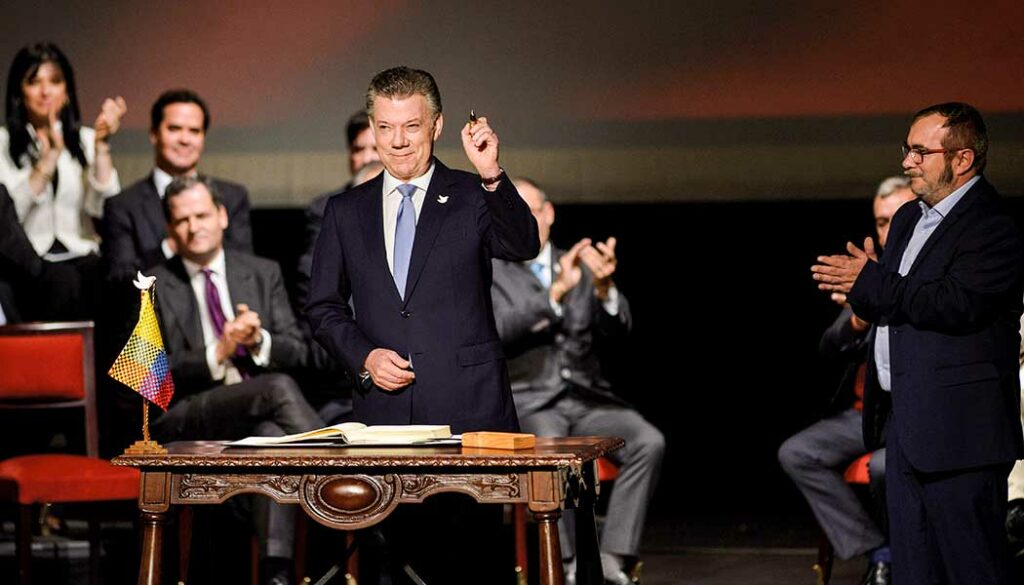
Santos now leads Compaz, a foundation dedicated to building stable and enduring peace by educating community leaders in negotiation and problem-solving, sustainable and inclusive development, and innovation and entrepreneurship. To share lessons from the Colombian peace process, Compaz has compiled more than 5,000 documents from negotiations to create an open digital library. During his visit, Santos and his team consulted with the Dole Institute’s archivists.
Santos praised the institute’s bipartisan mission. “Politics have become very aggressive, and the polarization has made democracy more ineffective,” he said. “I’m so happy that this institute promotes a bipartisan approach to politics. It is very urgently needed all around the world.”
One audience member, Diana Bartelli Carlin, d’72, g’74, thanked Santos for emphasizing empathy as an essential ingredient in bipartisan democracy, peacemaking and leadership—a quality that is sorely lacking in the era of social media. In response to her question about how we can foster empathy, Santos said education in homes, schools and universities can play an important role in restoring our ability to put ourselves in the shoes of others. “If you can’t understand the concerns, the dreams, the hopes and the frustrations of the people,” he said, “you cannot lead.”
Jennifer Jackson Sanner, j’81, is editor of Kansas Alumni magazine.
Photos courtesy of University Press of Kansas
/
